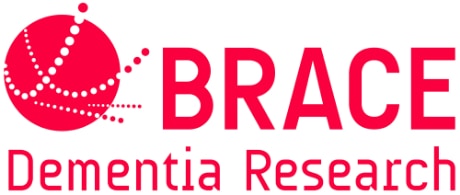BRACE Research Policy
1.BRACE’S Supports research into:
- Understanding the brain to identify underlying causes of different dementias.
- Developing accurate and effective means of diagnosing dementias as early as possible.
- Finding new methods of prevention and treatment for different types of dementia, and ultimately a cure.
2.BRACE is committed to funding research into all forms of dementia, including Alzheimer’s, Lewy body dementia, frontotemporal dementia, and vascular dementia. We welcome applications from conditions related to dementia including:
- Traumatic Brain Injury
- Mild cognitive impairment (MCI)
- Young-onset dementia
Dementia-related to other neurological disorders, such as dementia in Parkinson’s and dementia related to Huntington’s disease, are eligible. However, we do not accept applications where the primary focus is not on dementia aspects of the disease. All applications will be assessed through the peer review process.
3. BRACE funds research into hypothesis-driven quantitative research into treatment, including drug treatment, self-management strategies, and carer support.
4.BRACE only funds applications taking place at institutions in the South West of England and South Wales, where there is clear evidence of existing studies on dementia.
5. BRACE will fund pre-clinical & clinical research and proof-of-concept projects.
6. BRACE funds Pilot projects and PhD studentships. Currently, we only provide core funding to the South West Dementia Brain Bank and a Dementia Nurse at the Bristol Brain Centre.
7. BRACE will not fund salaries except where they are essential for project, and, therefore, short-term costs within the research grant budget can be considered.
8. BRACE is an active member of the Association of Medical Research Charities (AMRC). We fully support the AMRC's endeavours to achieve and maintain ethical and transparent practices in medical research, including its statement on animal testing.
Last updated May 2024
Share this page




